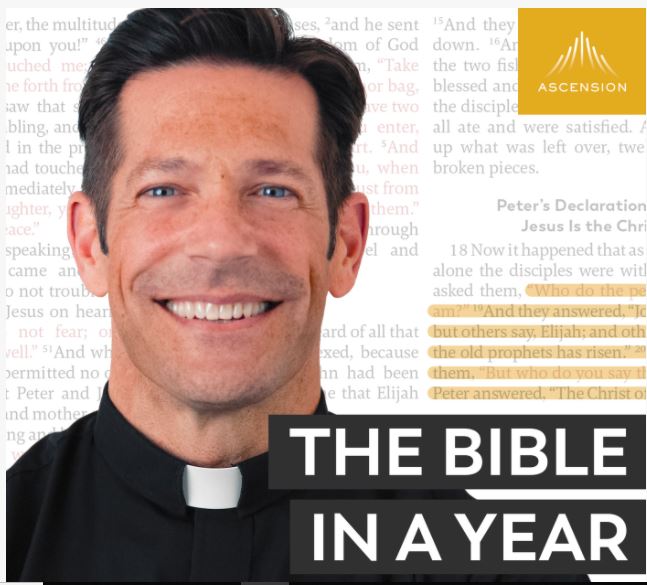
The Bible in a Year (with Fr. Mike Schmitz)
Day 45: Pray for Priests
As we read Exodus 29, Leviticus 21, and Psalm 119:121-176, Fr. Mike points out how God calls broken and imperfect men to his holy priesthood, and asks each of us to say a special prayer for priests today.
Click on link:
